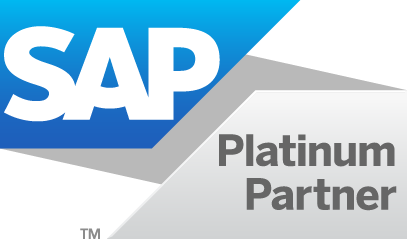The digital era has transformed the way businesses operate, placing a premium on technology adoption for sustained growth and competitive edge. At the forefront of this transformation is Salesforce, the premier #1 CRM platform empowering organizations to streamline operations, enhance customer engagement, drive business growth, and so much more. However, to effectively implement Salesforce, one requires meticulous planning, strategic alignment, and expert guidance.
This comprehensive guide aims to illuminate the path for businesses to unlock Salesforce’s full potential for growth. From strategic planning to user adoption, data migration, and continuous improvement, each step is key to maximizing the benefits of Salesforce implementation.
Let us delve into the intricacies of integrating Salesforce seamlessly into your organization’s framework, propelling it towards unparalleled growth and success!
1. Strategic Planning
Strategic planning is the cornerstone of a successful Salesforce implementation, laying the groundwork for alignment with your organization’s overarching goals and objectives. Begin by conducting a thorough analysis of your current business processes and identifying areas where Salesforce can add the most value. Engage key stakeholders from across the organization to ensure their buy-in and support throughout the implementation process. Develop a detailed roadmap that outlines the steps needed to achieve your goals, including timelines, resource allocation, and milestones. A well-crafted strategic plan will serve as a guiding light, ensuring that your Salesforce implementation is not only successful but also aligned with your long-term business objectives.
2. Customization and Configuration
Customization and configuration are pivotal aspects of a successful Salesforce implementation, enabling you to tailor the platform to suit your unique business needs. By working closely with an authorized Salesforce partner like Axxis Consulting, businesses can customize Salesforce to align with their specific requirements, ensuring seamless integration with existing systems and workflows. Identify key areas where customization can enhance efficiency and productivity, such as creating custom fields, workflows, and reports. Leverage Salesforce’s extensive library of apps and integrations to further customize the platform to meet your evolving business needs. A well-customized Salesforce platform can not only improve operational efficiency but also drive user adoption and satisfaction across your organization.
3. User Adoption and Training
Providing comprehensive training upon adoption can help ensure that your employees are comfortable and proficient in using the platform. Tailored training programs that cater to the specific needs of your organization can help facilitate a smooth transition to Salesforce. Engage with your employees early and often, address any concerns or challenges they may have, and encourage feedback to drive higher levels of user adoption. By investing in thorough training and fostering a culture of continuous learning, you can maximize the ROI of your Salesforce implementation.
4. Data Migration and Integration
Data migration and integration are critical components of a successful Salesforce implementation. Migrating data from legacy systems to Salesforce can be complex, requiring careful planning and execution. Axxis Consulting has expertise in data migration and integration, ensuring that your data is transferred securely and accurately. We can help you map out the data migration process, identify potential challenges, and develop strategies to mitigate risks. Additionally, we can assist you in integrating Salesforce with other systems to streamline operations and improve efficiency. By leveraging our expertise, you can ensure a seamless data migration and integration process, enabling you to unlock the full potential of Salesforce for your business.
5. Continuous Improvement
Continuous improvement is key to maximizing the benefits of your implementation. Regular updates and enhancements to your Salesforce, for instance, are essential to ensure that you are leveraging the latest features and functionalities. Keep abreast of new Salesforce releases and evaluate how these updates can benefit your organization. Solicit feedback from users to identify areas for improvement and implement changes accordingly. By continuously fine-tuning your Salesforce implementation, you can optimize your processes, improve user satisfaction, and drive greater business value.
6. ROI Measurement
Measuring the ROI of your Salesforce implementation is crucial for assessing its impact on your business. Define clear metrics and key performance indicators (KPIs) that align with your business objectives, such as increased sales revenue, improved customer satisfaction, or enhanced operational efficiencies. Regularly track and analyze these metrics in order to evaluate the effectiveness of your Salesforce implementation. Identify areas where improvements can be made and implement strategies to enhance ROI. By measuring ROI, you can demonstrate the value of Salesforce to your organization and make informed decisions to optimize its performance and drive business growth.
Implementing Salesforce, when done right, can transform your business operations and drive substantial growth. As an authorized Salesforce reseller, Axxis Consulting stands ready to be your trusted partner in this journey, offering expertise in Salesforce implementation, along with several other aspects. With our deep industry knowledge and experience across financial services, retail, manufacturing, government sectors etc., we are well-equipped to tailor Salesforce to your unique business needs.
By leveraging our comprehensive suite of services, businesses can unlock the full potential of Salesforce, drive innovation, and achieve unparalleled success in the digital age. Contact us today to embark on a transformative Salesforce journey!














